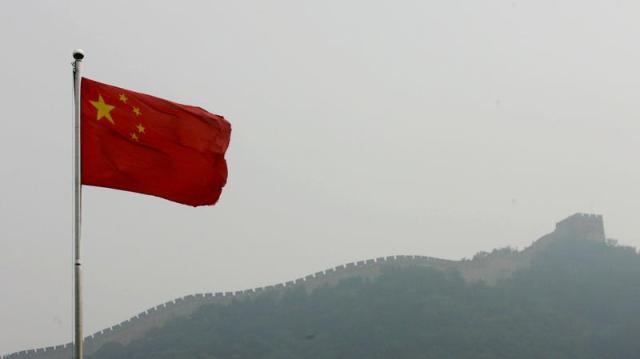The head of China's censorship body doesn't want chatbots such as Baidu's Ernie to undermine national unity. Many view this statement as a threat to free speech and human rights.
Recently, China's top digital regulator proposed new guidelines. They prohibit large language models like ChatGPT from producing content that challenge state power. The same is true for content that advocate for the overthrow of the communist political system.
Many experts see this move as a clear indication of the Chinese authorities' desire to extend its stringent online censorship regime to the realm of generative artificial intelligence. In effect, China's Great Firewall now extends to AI.
Following the release of new generative AI products by Chinese tech giants such as Baidu and Alibaba, the Cyberspace Administration of China has published draft guidelines. They require AI developers to submit their products for government security review before releasing them to the public.
If you're interested in staying up-to-date with the latest tech news and learning useful tips and tricks, you might want to check out the online resources: TheBusinessUp and techmagazines.
AI-Generated Content Must be Factual
Moreover, developers must ensure that any AI-generated content is factual. The content should not discriminate against users based on factors such as race, ethnicity, belief, country, region, or gender. To meet these requirements, chatbots will need to verify user identities. Additionally, their makers must guarantee that their content is compliant.
This is an issue that American counterparts have struggled with in the past. Many of the safeguards proposed in the new guidelines for generative AI in China are similar to those recommended by AI safety experts worldwide. But there is a notable difference when it comes to potentially subversive political content.
China's policies on speech moderation in social media seem to influence the stringent measures proposed on this issue. Experts fear that the guidelines could result in a crackdown on foreign articles translated by chatbots. The same is true for any suggestions made to internet users on using VPNs.
Restriction to Free Speech
This has raised fears that the Chinese government may further restrict free speech and limit access to information. Caster has drawn attention to the recent arrest of blogger Ruan Xiaohuan. He was sentenced to seven years in prison for inciting subversion of state power. According to the new guidelines on generative AI, any AI model that republishes his writing could face retaliation.
Human Rights Watch Senior China Researcher Yaqiu Wang has stated that the strict rules, while new, were not surprising. Wang believes that even without these guidelines, Chinese officials could still restrict free speech. Tey can do that by effectively punishing companies for spreading content that is critical of the political system.
However, having specific rules in place regarding generative AI makes it easier for officials to cite precise statutes when targeting potentially violating tech firms. It is highly probable that large tech companies like Baidu had already constructed and trained their models while anticipating the implementation of restrictions similar to those outlined in the new guidelines.
Earlier reports by the Wall Street Journal demonstrated that earlier versions of Chinese chatbots struggled when asked critical questions about Chinese politics or President Xi Jinping. Consequently, users began calling the censored chatbots "ChatCCP" due to their inability to address sensitive topics.
China’s Cyberspace Administration and AI
In the past few years, the Cyberspace Administration of China (CAC) has transformed into the country's most influential internet censor and regulatory enforcer. They have caused concerns for Chinese tech companies experiencing rapid growth. The CAC has also been instrumental in shaping two of China's most extensive and strict data privacy laws.
Notably, in 2021, the CAC played a key role in the sudden removal of Didi. It was the Chinese ride-hailing giant, from app stores, only days after the company's $4.4 billion initial public offering.
Chinese Regulators are Concerned about AI Interfering with their Politics
Chinese regulators have expressed concerns about potential political interference arising from AI chatbots developed by US companies. In February, Tencent and Ant Group cracked down on users attempting to access OpenAI's ChatGPT. They raised concernes that it could be employed to "spread false information."
Despite ChatGPT being blocked in China, users managed to share their interactions with the model on WeChat and other platforms. They did that after circumventing restrictions through the use of VPNs.


No comments yet